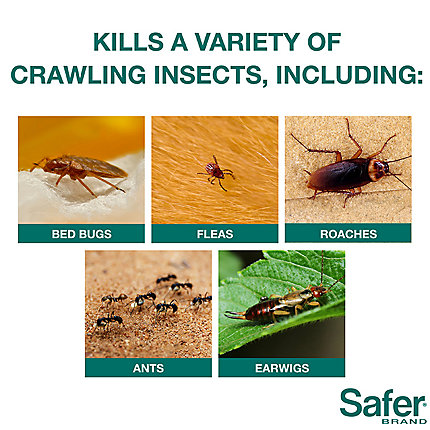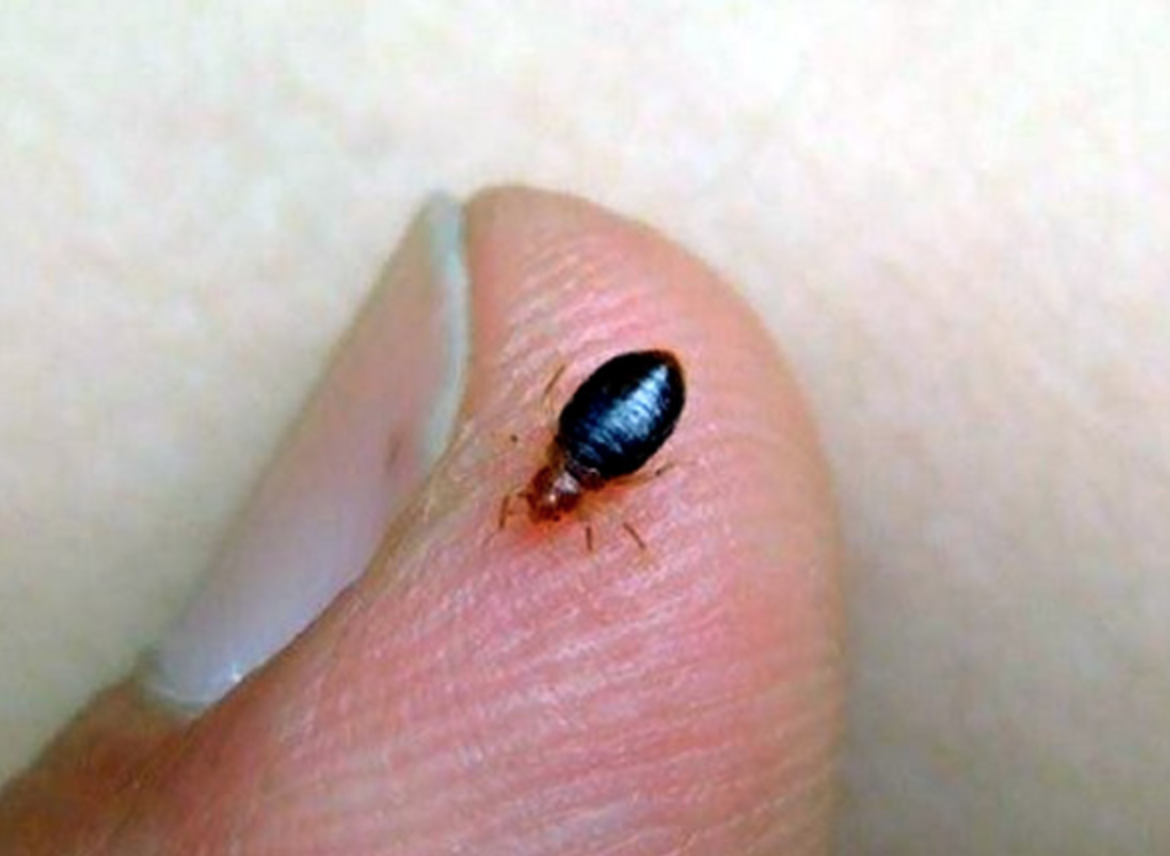Diatomaceous Earth Kills Bed Bugs
/SPR-Home-v2-The-6-Best-Bed-Bug-Sprays-of-2021-4169544-primary-e60522fdc2be44e1af2107cda31d5c47.jpg)
Step 4: Use Diatomaceous Earth to kill bed bugs
STEP #4: KILL BED BUGS WITH DIATOMACEOUS EARTH Diatomaceous earth (DE for short) is an extremely helpful tool in both eradicating bed bugs and proofing a home against re-infestation.
Hi, I'm Rose with Zapp. Bed bugs are a problem and this video will show you how Diatomaceous Earth is used to rid them. Diatomaceous is a chalky substance created from diatoms which are fossilized sea creatures. It's nontoxic and one of the safest ways we know of to kill bed bugs.
These safety guidelines are important to follow when working with diatomaceous. Be careful around animals and children as with all substances. It isn't toxic when inhaled, though it can be used to deworm pets. However, I don't recommend eating diatomaceous soil. Prolonged contact with your skin will dry it out but it's no big deal. You can use moisturizer if your skin is dry.
You don't want any dust in your lungs. Be cautious when applying it. Make sure that you are buying food or pet grade diatomaceous Earth. This is a crucial difference: pool grade has much smaller particles and is a lot more hazardous if breathed in. There is also insecticide diatomaceous clay that has been premixed in pesticides. However, this was not something I saw on the shelves.
You will see diatomaceous is an extremely fine powder similar to flour. By acting as an insecticide, diatomaceous soil kills bedbugs. Use diatomaceous soil to create a barrier around areas that bedbugs frequent. The diatomaceous soil will trap them and cause their death through dehydration.
It takes seven to 17 days for bedbugs to die after they have been exposed to diatomaceous earth. It can take up to three days depending on what stage the bed bug is at in the molting cycles, how much DE they were exposed to, as well how long. You don't need to panic if bedbug activity persists after spreading diatomaceous earth.
We're using the Thomas Labs 3-pound pet grade jar for diatomaceous earth. It's very affordable, has plenty of material that can be used, is easy to reseal, and it comes with sufficient materials. Amazon sells this item in a range of sizes, as well as different brands. If you are interested, we also provide a link in the description.

What's Diatomaceous?
Diatomaceous Earth is an excellent tool that you can use to fight bed bugs. This all-natural, non-toxic barrier can kill bed bugs and keep them away from your home.
Remember that diatomaceous earth alone will not be enough to treat your bed bug infestation. While it works great at preventing bed bugs from moving throughout the walls, or for creating a safe zone, the best use of diatomaceous earth is alongside heat treatment and the rest of the 8-step process. As a guide to managing your other dwellings, heat treatment should always be done on your personal belongings.
# ALL NATURAL – Diatomaceous earth comes from diatoms (fossilized marine creatures) whose bodies are mainly made of silicon dioxide. It is non-toxic and easy to use.
# FITS GREAT WITH HEAT TREATMENT. Diatomaceous is a wonderful tool that you can use to heat treat your household items. It is heat safe, so you can use it to heat items that have not been heat treated.
# KILLS SAFELY: Diatomaceous earth is a desiccant, disrupting the waxy shell of bed bugs and making them more prone to eventual death by dehydration. It contains no pesticides or dangerous compounds.
# MECHANICAL BARRIER – It acts as a barrier that prevents bed bugs crawling on it.
# NON-RESISTANT : The bed bugs will not develop resistance as much to this pesticide as some other pesticides.

Diatomaceous Earth Has No Expiration
There are many types of bedbug power available on the market. It can be hard to choose what product to purchase. Different brands include different chemical and other ingredients in their formulations. Food-grade diatomaceous Earth is the active ingredient in most brand's products that kills bedbugs. Problem is, you'll end up paying more and getting less.
DE stays active indefinitely unless it becomes contaminated. Diatomaceous soil is a natural mineral. It does not expire. Fine sedimentary dust can lose effectiveness over time if it absorbs excessive moisture or other contaminants.
Small containers of power don't have to be wasted. They need to be maintained frequently. It is because I can only recommend and review specific DE brands, The information you will find here can also be helpful if you've already purchased your DE.
PermaGuard Pure Diatomaceous Shell Flour is my favorite brand. This 50-pound bag includes a 1 Liter Shaker for under $60. Do you need the powdered-down version? Why waste money on additional products when DE is available right away.
This one bag may be the only one you need to buy. It is designed to endure through all stages of an infestation. Some people claim it works in a matter of days. However, it did work for me. I was able to see the bug die within just a few days. This went on for quite some time, until finally all the bugs died.
The brand doesn't only contain bed bugs powder. This powder can be used in many other areas of the home. It works with bloodsuckers as well. This product is used by many people for pet and farm-animal flea dust.
Are you using the wrong kind of DE for bedbugs? For bedbug control, pool-grade DE can be dangerous.
Questions and Answers
Question: What do you think about foam robber mattresses? Do they harbor bedbugs in them or elsewhere?
Answer: CO2 is the main attraction for bed bugs. While it's a byproduct cell respiration, for us it's a sign of our location. For bed bugs however, it can be a way to find out where we are. Their nests are often built in proximity to the head of our beds. No matter the materials used in our beds, they can hide within easy reach of their prey.
The difference in bed bug infestations is due to the absence of seams on foam mattresses. The foam mattress may have many pores that bed bugs could hide within. You can also hide if there is damage or missing parts.
The best mattress for bed bug and nest removal is one that has no small pores. It is possible that your bed frame might be more infested.
Question: Does diatomaceous earth kill fleas and ticks?
Answer: Diamoaceous earth can kill both ticks and fleas. You can even use it in your garden to get rid of numerous pests. This fine powder works to kill fleas and ticks the same way it works to kill bed bugs. It will create tiny abrasions which can lead to tiny bites. This will lead to dehydration, which will kill them.
(c) 2012 Melody Collins Peggy Dyer on December 08, 2019:

It failed because of this:
The safest and most effective way to fight bed bugs is with diatomaceous Earth. It is touted as an eco-friendly, affordable option by dozens of Internet websites. Advocacy for DE is not limited to online marketing sites. Some government institutions and educational institutions may recommend diatomaceous soil as part a "comprehensive integrated program to manage bed bugs" (CDC/EPA 2013. So how did it do in the field?
The weak performance of DE was unexpected especially considering how thoroughly the dust was applied to bugs and their harborages. Following inspections revealed that many bed bugs were clearly covered in dust. Our group has previously shown, along with others, that diatomaceous Earth kills bedbugs (at least in laboratory studies) (Doggett and al. 2008, Romero et al. 2009 After three distinct bed bug strains were continually exposed to DE levels in the petri dish, over 90 percent of them died within 4 days. The bugs then went on to die after 10 days. 2009. Subsequent (unpublished) work, however, showed that mortality declined when bed bugs were confined on surfaces dusted with lesser amounts of the material. Recent laboratory studies have shown that DE's effects are significantly reduced when the surface is treated with a shorter exposure. No mortality occurred, for example, when bed bugs traversed a 1-inch-wide strip of DE-dusted filter paper and were then held for several days in an untreated container. Benoit et al. also found poor efficacy from short-term lab exposure to diatomaceous clay. 2009.
Some pests are more tolerant of diatomaceous than others. Because they constantly crawl on dust-coated kernels, the DE's abrasive effect makes them vulnerable to insects infesting grain storage. Similar high levels of abrasion might be expected to occur as flea larvae wriggle between DE-dusted carpet fibers. Bed bugs seemingly would have more intermittent exposure to DE deposits, which could help explain the limited effects in our field trial.
Crickets and slugs are pests that can be prone to water losses. Pests that are highly susceptible to drying dusts (crickets, lugs etc.) tend to be less tolerant to these types of pests. On the other side of the scale, bed bugs can be dehydrated. Studies have shown that bed bugs lose moisture very slowly through their water-resistant cuticles and can tolerate extreme dehydration. This is especially true of the adults and later stage nymphs. The ability of a bed bug to resist dehydration (Benoit et al. 2009).
If they have a host to feed them, bed bugs can replenish water by regularly taking blood meals. Every blood meal requires that the developing nymphs molt. A new cuticle forms, with a protective outer layer and a fresh inner layer. If they have easy access to the host and live in unoccupied houses, then bed bugs will usually molt in one week. However, it is possible for nymphs to live if they don't succumb in the first week to a desiccant. Collectively, such adaptations make bed bugs challenging targets for insecticides, particularly those that kill slowly via desiccation.
Laboratory studies have further shown that diatomaceous earth is less effective against bed bugs and other pests at higher humidity (Subramanyam and Roesli 2000, Doggett et al. 2008 These situations may be found in areas that bed bugs like to assemble. Some dusts such as DE can repel insects. We're currently investigating this in respect to bed bugs and the industry's use of dust.

You can treat bed bug infestations with a natural pesticide
Diatomaceous earth is an effective bed bug powder. It's also cheap and free of harmful chemicals. It can easily be applied around the house, as well as being safe for children, pets, food and other household items.
DIatomaceous earth, also known as DE, kills bedbugs by absorption of the protective oil layer over their exoskeletons. The protective layer is essential to prevent bed bugs from drying out and dying within hours.

Diatomaceous Earth for Bed Bugs: How Effective is It?
It is becoming more popular to use natural remedies for bedbugs. Some treatments are effective, but others have been shown to not work scientifically. Bed bug treatment with diatomaceous earth is very popular, however it remains to be proven effective.
Diatomaceous earth scratches away the outer waxy layer of bed bugs when they crawl over it. They are both sharp and solid. The scratching causes them to dry up and die. However, while diatomaceous earth kills bed bugs on contact, they've learned to avoid it.
Everything you need about how to use diatomaceous soil to kill bedbugs will be covered. You will learn how the diatomaceous Earth works and its effectiveness, as well as how you can use it to kill bed bugs.
























:fill(white)

